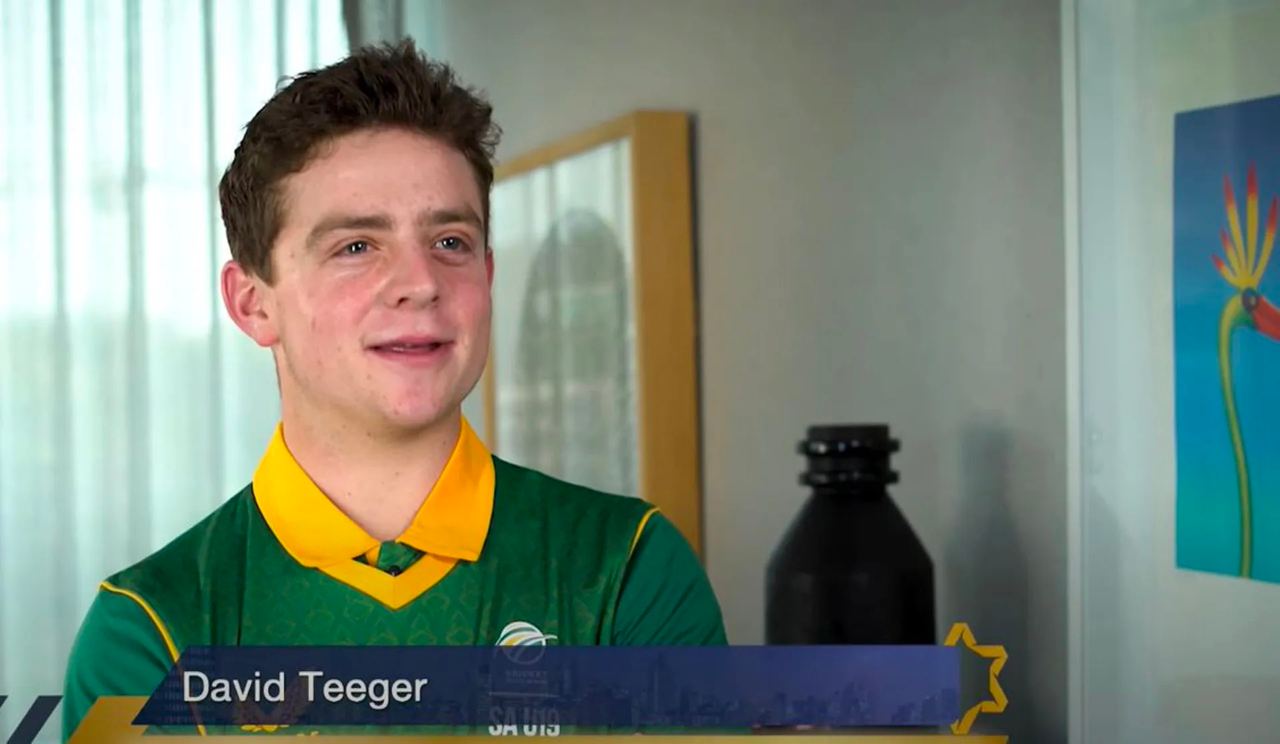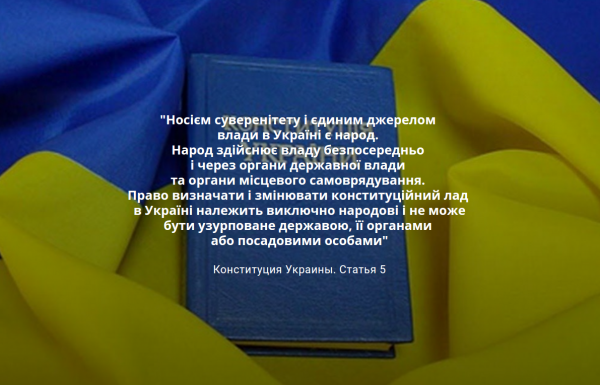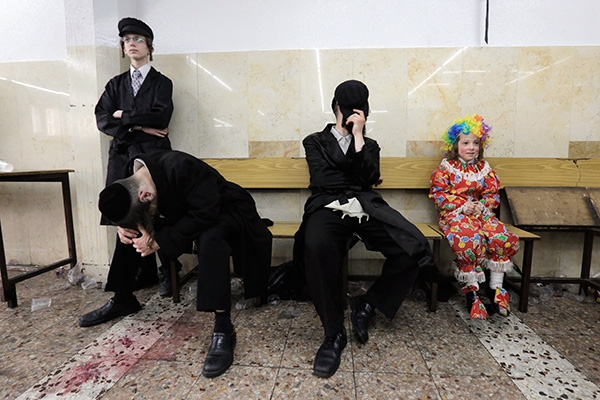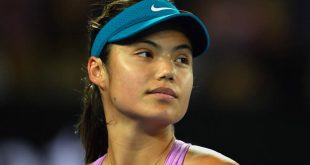Heads of South Africa’s Jewish community denounce the move to demote 19-year-old David Teeger over his support of Israel and claim that a meeting between the chairman of Cricket South Africa with an ANC minister the day before points to government involvement. ‘This smells of what happened in the Nazi Olympics,’ says community president
The heads of South Africa’s Jewish community have called the decision to strip a young Jewish cricket player of the captaincy of the national under-19 team pure antisemitism and completely unacceptable.
The South African Jewish Board of Deputies met with governing body Cricket South Africa on Tuesday, hoping to convince it to reverse its decision to demote David Teeger ahead of the Under-19 Cricket World Cup, which starts in South Africa on Friday.
Teeger’s demotion was the result of a chain of events that began last October when Johannesburg’s Jewish community presented him with the Jewish Rising Star award.
According to the South African Jewish Report, the young cricketer said during his acceptance speech: “Yes, I’ve been [given] this award, and yes, I’m now the rising star, but the true rising stars are the young soldiers in Israel” fighting Hamas in Gaza. He dedicated his award to “the State of Israel and every single soldier fighting so that we can live and thrive in the Diaspora.”
The Palestinian Solidarity Alliance subsequently filed a complaint with the South African Sports Confederation and Olympic committee, who referred the complaint to barrister Wim Trengove. He conducted an independent inquiry, concluding that Teeger had acted within his constitutional right to freedom of expression and didn’t deem his behavior to be inappropriate or hurtful.
The cricket body’s decision to demote the observant Jewish player came last week, in which it cited alleged security concerns. It has not, however, removed Teeger from the squad for the tournament.
The decision is widely seen as political, with South Africa in the midst of a legal battle with Israel, having taken it to the International Court of Justice over accusations of genocide against the Palestinian people in Gaza.
Jewish Board of Deputies Chairwoman Prof. Karen Milner said her organization was immediately skeptical of the cricket body’s reasoning. “We questioned the validity of protecting this young man not by adding security but by keeping him on the field and only stripping him of his captaincy. This is completely unacceptable,” she said, speaking at a press conference Tuesday following a meeting earlier that day between the two groups.
Milner and other board members were dissatisfied with the explanation offered for why Teeger is no longer captain. During the course of the meeting, she said, the cricket body shifted from citing Teeger’s personal safety to the safety of the team, and then to the safety of the fans who would be attending the matches.
“There was nothing that Cricket South Africa was able to present that was the least bit convincing. Every single time we challenged them on the safety issue, they shifted the goalposts once again,” Milner said. “We were eventually told: ‘We’ll have to agree to disagree.'”
‘Massive pressure’
Jewish Board of Deputies President Zev Krengel, who also attended the meeting, likened what happened to Teeger to a particularly dark chapter in sports history.
“We find this pure antisemitism,” he said at the press conference. “This smells of what happened in 1936 in the Nazi Olympics.”
Krengel was referring to an incident involving two U.S. Jewish runners, Marty Glickman and Sam Stoller, who were slated to appear in the 4×100-meter relay team at the Berlin Olympics. The day before the event, however, they were replaced by Jesse Owens and Ralph Metcalfe, the team’s two fastest sprinters. While the U.S. coaches Dean Cromwell and Avery Brundage claimed they needed their fastest runners to win the race, Glickman accused them of being motivated by antisemitism and the desire to spare Adolf Hitler the embarrassing sight of two American Jews standing on the medal podium.
For Krengel, Teeger’s removal as captain in the same week South Africa brought its genocide case to the world court was no coincidence.
“Chairman [Lawson] Naidoo of Cricket South Africa met with the minister of sports, Zizi Kodwa, the day before he stripped [Teeger] of his captaincy. That’s public knowledge,” Krengel said. “And we do know the African National Congress has put massive pressure on sporting bodies before. We do not have exact proof. We will eventually. It will come out somewhere. But I do think what was quite scary was that the ANC came out [Monday] with ‘The ANC congratulates new Springbok captain Juan James,’ and then they go in talking about David with the ‘genocidal’ and all that other stuff.”
Krengel was referring to an ANC statement in which it slammed the opposition Democratic Alliance party for its defense of Teeger. Its statement concluded by noting: “Teeger was removed as the captain after having expressed his public support for the genocidal Israeli Defence Force [sic].”
The Jewish Board of Deputies also noted the International Cricket Council’s stance that it saw no security threat at the tournament if Teeger were still to be captain. Although the board of deputies plans to appeal to it, cricket’s international governing body has said it will not intervene in the matter.
Cricket South Africa has not issued any statement except the initial one last week citing safety issues. However, Krengel said those security concerns were “totally bogus, and an excuse to strip him of his captaincy.”
History repeating
David Teeger is not the first Jewish-South African cricketer to find himself at the center of an antisemitism scandal. Indeed, Daniel Lightman – co-curator of the exhibition “Cricket and the Jewish Community” at Lord’s Cricket Ground in London – says Teeger’s story might be a case of history repeating itself.
In the 1930s, a South African cricketer named Norman Gordon was the first openly Jewish cricketer at international level. “There were other Jewish players,” Lightman explains, “but they hid their heritage out of fear of antisemitism.” When Gordon ran up to bowl his first ball on his international debut, he heard a heckler in the crowd shout “Here comes the rabbi!”
“And he didn’t mean it in a good way,” Lightman recounts.
Over the next few years, Gordon hit many career milestones and seemed destined for greatness. In 1940, though, international cricket was postponed due to the war and when it resumed, he was rejected from the 1947 tour. The given reason closely mirrors Teeger’s. According to Gordon, as he related the story to Lightman: “A friend of mine told me that he had heard from one of the tour selectors that [South African captain] Alan Melville had told them not to select me as there might be antisemitism and unpleasantness in England.” Gordon never played professional cricket again.
Was the decision to demote Teeger and remove Gordon from their respective tournaments antisemitic, or was it genuinely done for safety reasons? As Lightman sees it, if the selectors were genuinely motivated to protect these Jewish players, surely they would have discussed the matter with them first?
In an article for The Spectator magazine in 2021, Lightman asks the question many Jewish cricket fans find themselves grappling with right now: Does cricket have an antisemitism problem? In the article, he places Gordon’s story within the broader context of Jewish cricketers who chose to hide their heritage at a time when neofascism was on the rise.
He also cites three modern-day antisemitic acts: an incident in 1995 when the English broadcaster Henry Blofeld was censored for his comment that spectators watching a match without paying were in “the Jewish stand”; Yorkshire head coach Andrew Gale’s suspension for having sent a tweet that said “Button it, Yid”; as well as former Yorkshire spin bowler Azeem Rafiq’s Facebook message in which he called a fellow cricketer a Jew for being unwilling to spend money at a team dinner.
While South Africa’s Jewish community cries antisemitism, others have accepted the cricketing body’s right to demote Teeger given current political tensions. Even so, criticism has still been voiced of Cricket South Africa’s approach.
“Far from turning the spotlight away from Teeger, it has now been shone directly onto him,” wrote Firdose Moonda, ESPNcricinfo’s South Africa correspondent. “At the age of just 19, he has become – at least in some circles – the face of an issue that ought to be way beyond the remit of a national captain of any age. … Teeger is young, and hopes to forge a long career in cricket. This does not preclude his statements from scrutiny beyond the boundary, but he does not deserve to be the symbol of this situation.”








